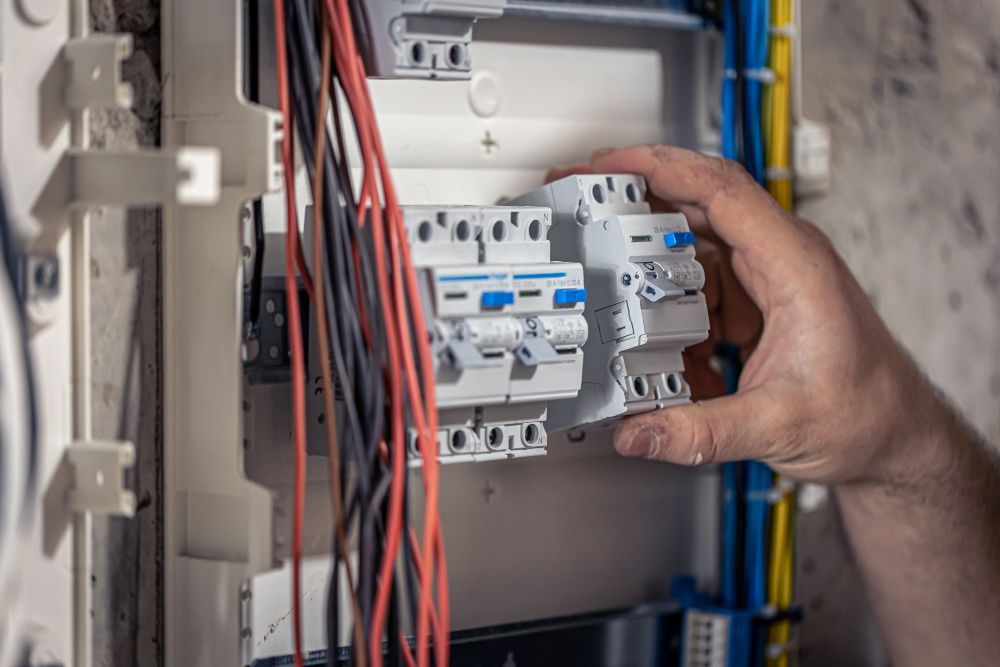Phase converters serve a critical function by facilitating the conversion of single-phase electrical power to three-phase power. This capability unlocks the utilization of three-phase equipment in settings with only single-phase availability. This technology holds particular value for various industries, including manufacturing, agriculture, and construction. This article dives into the advantages of employing these devices, with a focus on their economic benefits, operational efficiency gains, and the enhanced flexibility they provide.
Economic Advantages
Avoiding High Utility Costs
Traditional utility-provided three-phase power upgrades can be fiscally prohibitive. Extending new lines incurs significant costs, ranging from $30,000 to $90,000 per mile, with an average of $50,000. These devices offer a compelling economic alternative. Their price point, typically between a few hundred and a few thousand dollars depending on size and type, represents a fraction of the upgrade expense. Furthermore, these devices eliminate the need for costly installations and new service panels, making them a financially attractive solution for many businesses.
Reduced Operating Expenses
One hidden cost of three-phase utility service can be demand charges. These fees are based on the peak amount of power a business uses, often during high-demand periods. This can significantly inflate electricity bills. These converters offer a way to bypass these charges entirely. By managing their own power usage, businesses can potentially save a significant amount on their electricity bills over time.
Better Machine Productivity
They deliver increased efficiency, resulting in lower energy consumption, and boast a significantly extended lifespan (averaging 6-8 years longer). Additionally, three-phase motors are generally more cost-effective to purchase and maintain. These devices provide a strategic solution, enabling businesses to leverage these advantages.
By facilitating the use of existing three-phase motors within a single-phase power infrastructure, businesses can avoid the capital expenditure associated with replacing equipment with less efficient single-phase alternatives. This translates to substantial cost savings throughout the entire life cycle of the machinery.
Operational Efficiency
Immediate Power Availability
Installing a phase converter can be completed in just a few hours, compared to the weeks or months it may take to extend utility lines for three-phase power. This quick installation enables businesses to start operations without significant delays, allowing them to respond swiftly to market demands or project requirements.
Versatility in Applications
Phase converters are a versatile solution, capable of powering a broad spectrum of three-phase equipment. This includes motors, compressors, welders, and a wide range of industrial machinery. This adaptability empowers businesses to adjust to evolving operational needs without limitations imposed by their existing power infrastructure. From powering heavy machinery in a manufacturing plant to providing the necessary juice for workshop tools, these devices offer the flexibility to meet diverse requirements.
Quality of Power
High-quality rotary phase converters produce a true three-phase sine wave with balanced voltage, ensuring that equipment runs smoothly and efficiently. This quality of power is crucial for sensitive machinery that requires stable voltage levels to operate correctly. Many of these modern converters come equipped with digital controllers that monitor and regulate voltage levels, enhancing the reliability and longevity of the equipment. This means less downtime and fewer disruptions in production, ultimately leading to increased productivity.
Flexibility and Convenience
Compatibility with Existing Infrastructure
The beauty of these devices lies in their compatibility with existing single-phase circuits. Businesses can avoid expensive electrical infrastructure upgrades by installing them directly onto their current system. This seamless integration allows them to maximize the value of their existing electrical investments while unlocking the advantages of three-phase power.
Multiple Load Capabilities
The ability of many phase converters to simultaneously power numerous three-phase loads translates to significant operational advantages. This versatility makes them ideal for a variety of applications within a single facility. Businesses that utilize multiple three-phase machines or tools benefit considerably from this capability. These devices streamline operations and enhance resource management by eliminating the need for dedicated power sources for each individual device. This fosters a more efficient workflow and optimized resource allocation.
Ease of Use
Phase converters are known for their user-friendly approach to installation and operation. Many models boast intuitive designs with readily accessible wiring points, minimizing the need for specialized training or extensive technical expertise. Furthermore, several converters come equipped with built-in safety features that safeguard both the equipment and the user, adding another layer of convenience and peace of mind. This combination of user-friendly design and built-in safety features makes these converters an attractive option for businesses seeking a hassle-free solution to their three-phase power needs.
Key Takeaway
Phase converters bridge the gap between readily available single-phase power and the requirements of three-phase equipment. This conversion technology unlocks a multitude of operational advantages for businesses. By eliminating the need for expensive utility upgrades to three-phase service, these devices offer significant cost savings.
Additionally, they enable businesses to leverage the inherent efficiency of three-phase motors, resulting in lower energy consumption and reduced long-term operational expenses. Phase converters further demonstrate exceptional versatility by powering a diverse range of three-phase equipment and handling multiple loads simultaneously. This flexibility empowers businesses to adapt to evolving needs without limitations imposed by their existing electrical infrastructure.
Moreover, the user-friendly design and built-in safety features of many phase converter models enhance their ease of use and promote a safe working environment. In essence, phase converters represent a strategic investment for businesses in various industries, optimizing power usage and propelling them towards greater operational efficiency and competitiveness.
